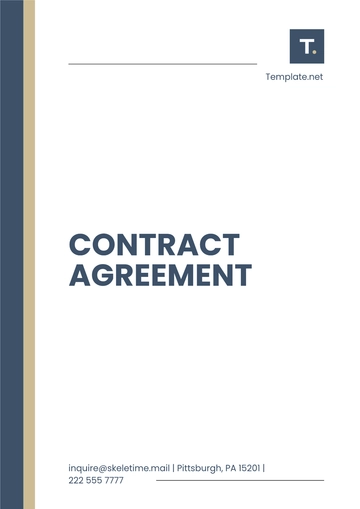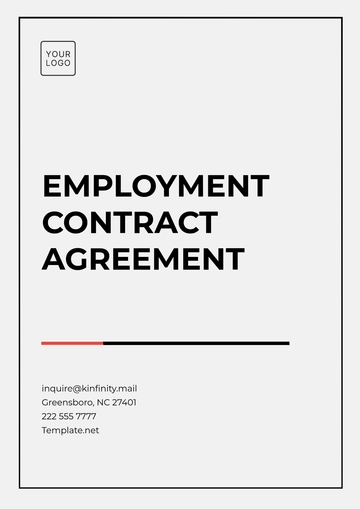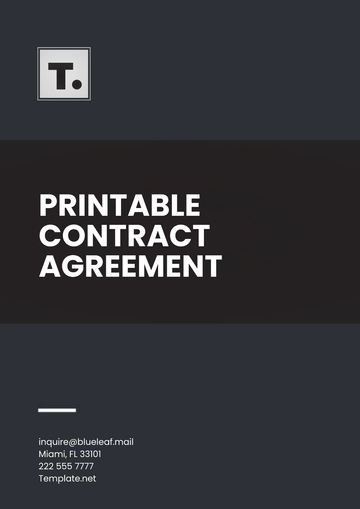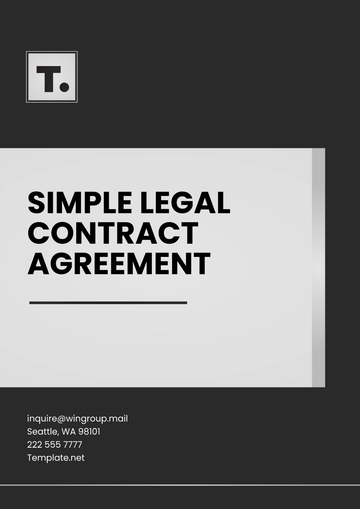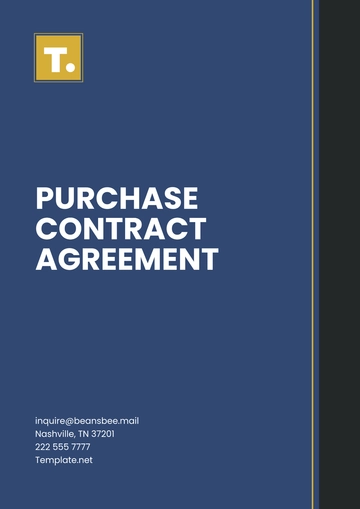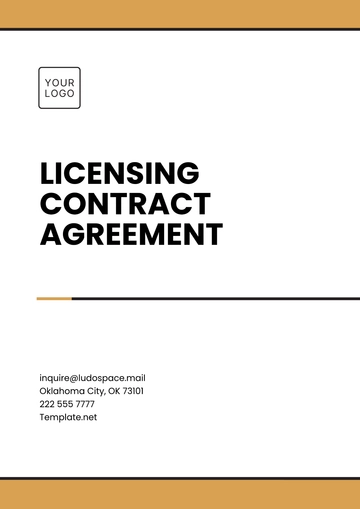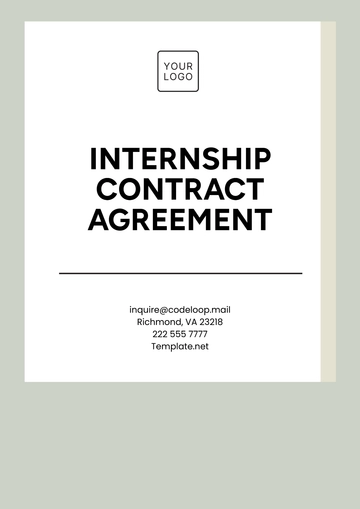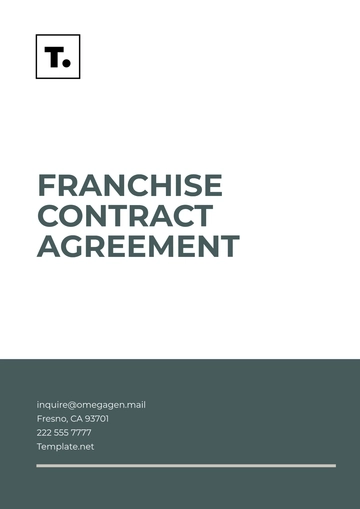Free Legal Contract Memorandum of Understanding (MOU)
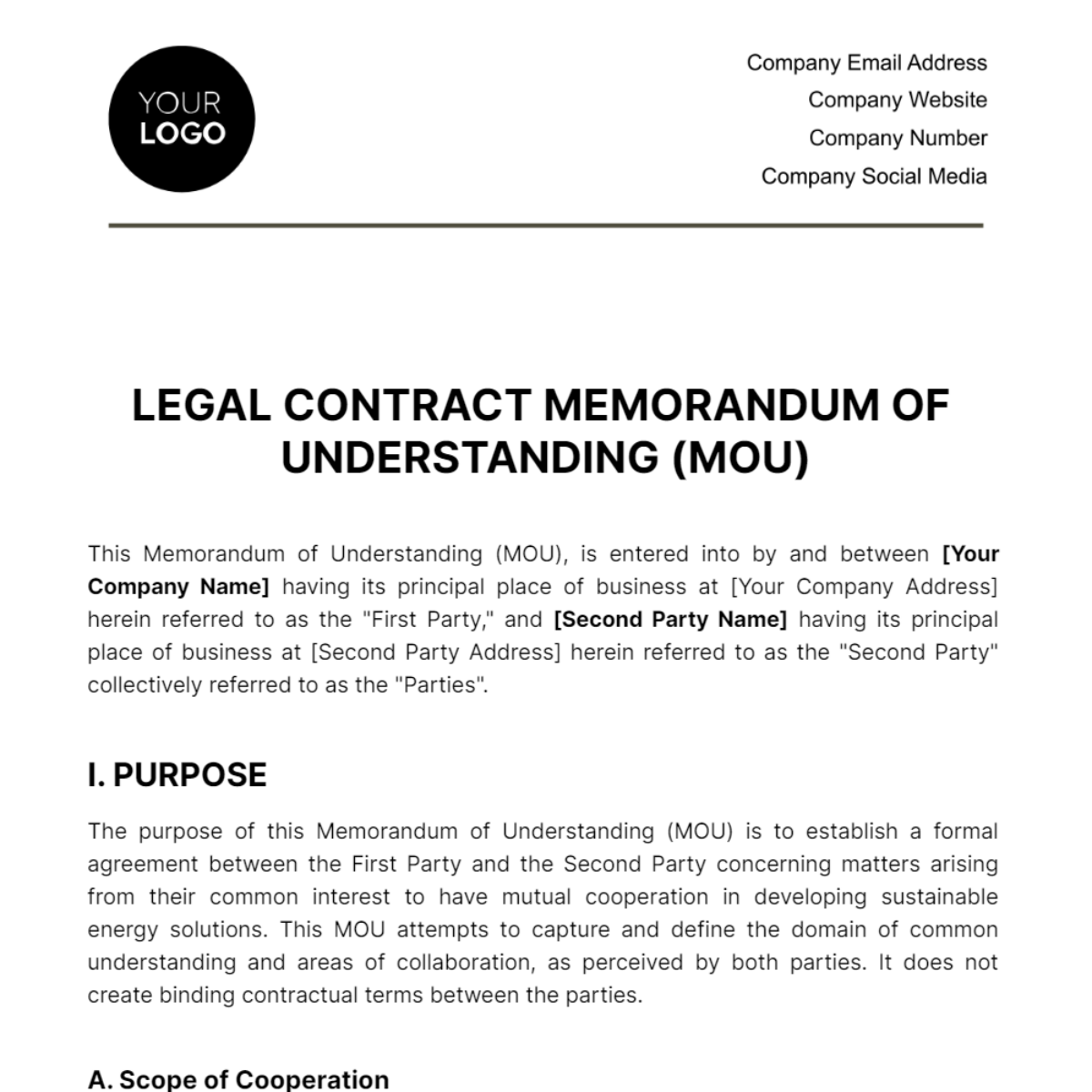
This Memorandum of Understanding (MOU), is entered into by and between [Your Company Name] having its principal place of business at [Your Company Address] herein referred to as the "First Party," and [Second Party Name] having its principal place of business at [Second Party Address] herein referred to as the "Second Party" collectively referred to as the "Parties".
I. PURPOSE
The purpose of this Memorandum of Understanding (MOU) is to establish a formal agreement between the First Party and the Second Party concerning matters arising from their common interest to have mutual cooperation in developing sustainable energy solutions. This MOU attempts to capture and define the domain of common understanding and areas of collaboration, as perceived by both parties. It does not create binding contractual terms between the parties.
A. Scope of Cooperation
Cooperation Context: The Parties have identified a common interest in developing sustainable energy solutions. This includes, but is not limited to, joint research and development projects, shared use of research facilities, exchange of technical personnel, and other forms of collaboration aimed at advancing sustainable energy technologies.
Areas of Collaboration: The Parties intend to collaborate in the following areas:
2.1. Research and development of new sustainable energy technologies
2.2. Sharing of research facilities and resources
2.3. Exchange of technical personnel and expertise
2.4. Joint applications for research funding
2.5. Dissemination of research findings through joint publications and presentations
These areas are based on the Parties’ shared interests and capabilities in the field of sustainable energy.
Common Understanding: This MOU represents the shared understanding of the Parties regarding their intent to collaborate in the field of sustainable energy. It outlines the general terms of the collaboration but does not impose legally binding obligations.
B. Non-Binding Nature of the MOU
This MOU is a statement of intent between the Parties. It is not intended to be legally binding or to create any legal obligations between the Parties. Any specific projects or activities that arise from this MOU will be subject to separate agreements, which will define the terms, conditions, and obligations of the Parties.
II. TERMS OF AGREEMENT
A. Effective Date and Duration
Effective Date: This Agreement shall come into effect from the date it is signed by both Parties. The date of signing will be recorded in the Signatures section of this Agreement.
Duration: The Agreement shall continue in effect indefinitely, fostering a long-term collaboration between the Parties, until it is terminated by either Party.
Termination: Either Party may terminate this Agreement at any time by providing a written notice to the other Party. The notice period and other conditions for termination should be mutually agreed upon.
B. Obligations and Responsibilities
Mutual Effort: Both Parties commit to diligently work and maintain open and frequent communication for the effective implementation of this Agreement. This includes regular meetings, updates, and collaborative decision-making.
Refusal of Obligation: If the execution of obligations under this Agreement, in the estimation of either Party, may divulge proprietary, confidential, or privileged information, each Party has the right to refuse such obligation. The refusal must be communicated in writing, clearly stating the reasons for such refusal.
Resolution of Disputes: In case of any disputes arising from the execution of obligations under this Agreement, the Parties commit to resolving them through mutual discussion and negotiation. If a resolution cannot be reached, the Parties may consider mediation or arbitration, or as a last resort, legal action.
C. Amendments
Amendment Procedure: Any amendments to this Agreement must be mutually agreed upon by both Parties. The amendments must be in writing and signed by both Parties, indicating their acceptance of the new terms.
Notification: Any proposed amendments to this Agreement should be communicated to the other Party in writing well in advance. This ensures that both Parties have sufficient time to review and consider the proposed changes.
III. CONFIDENTIALITY
A. Exchange of Confidential Information
Necessity of Exchange: Both Parties acknowledge that in the course of this Agreement, it may be necessary to exchange certain confidential information for the purpose of performing the obligations under this Agreement.
Definition of Confidential Information: Confidential information may include, but is not limited to, technical data, proprietary information, operational procedures, marketing strategies, customer lists, and other materials or information that is not generally known to the public.
B. Obligations Regarding Confidential Information
Non-Disclosure: Both Parties agree to keep all such confidential information in strict confidence and not to disclose such information to any third parties without the prior written consent of the other Party.
Use of Confidential Information: Both Parties agree to use the confidential information solely for the purpose of performing their obligations under this Agreement and not for any other purpose without the prior written consent of the other Party.
Protection of Confidential Information: Both Parties agree to take all reasonable measures to protect the secrecy of the confidential information and to prevent the confidential information from falling into the public domain or into the possession of unauthorized persons.
C. Exceptions to Confidentiality
Public Knowledge: The obligations of confidentiality shall not apply to any information that is already in the public domain through no fault of the receiving Party.
Prior Knowledge: The obligations of confidentiality shall not apply to any information that was known to the receiving Party prior to disclosure by the disclosing Party, as long as the receiving Party can provide proof of such prior knowledge.
Independent Development: The obligations of confidentiality shall not apply to any information that is independently developed by the receiving Party without use of the confidential information.
Legal Requirement: The obligations of confidentiality shall not apply when the receiving Party is legally required to disclose the confidential information, provided that the receiving Party gives the disclosing Party prompt notice of such requirement prior to disclosure and assists in obtaining an order to protect the information from public disclosure.
IV. LEGAL COMPLIANCE
A. Compliance with Laws
Adherence to Laws: Each Party will comply with all applicable laws, regulations, and ordinances in the course of performing their obligations under this Agreement. This includes, but is not limited to, laws related to data protection, intellectual property, labor, and health and safety.
Updates and Changes: Each Party will stay informed about and adapt to changes in relevant laws and regulations that may affect their performance under this Agreement. This includes monitoring changes in the legal landscape, participating in relevant training and awareness programs, and implementing necessary changes in a timely manner.
B. Dispute Resolution
Mutual Agreement: In case of any dispute arising from or related to this Agreement, the Parties will first attempt to resolve the dispute through mutual discussion and negotiation.
Mediation or Arbitration: If a resolution cannot be reached through mutual agreement, the Parties may agree to resolve the dispute through mediation or arbitration, as specified in a separate agreement. The mediator or arbitrator will be mutually agreed upon by the Parties.
Legal Action: As a last resort, if the dispute cannot be resolved through mutual agreement, mediation, or arbitration, legal actions may be initiated in a court having jurisdiction as per the laws of [State Name].
C. Jurisdiction and Governing Law
Jurisdiction: The Parties agree that any legal action arising from or related to this Agreement will be brought in the courts of [State Name], unless otherwise agreed upon.
Governing Law: This Agreement will be governed by and construed in accordance with the laws of [State Name], without regard to its conflict of laws principles.
V. LIABILITY
A. Limitation of Liability
No Warranties for Third Parties: Nothing in this Agreement will be construed as creating any warranties, neither express nor implied, toward any third party not a party to this Agreement. This includes, but is not limited to, any warranties of fitness for a particular purpose, merchantability, or non-infringement.
Sole Responsibility: Each Party to this Agreement bears the sole responsibility and liability for their own separate and independent activities under this Agreement. This includes, but is not limited to, any actions taken, decisions made, or obligations undertaken in the course of performing their responsibilities under this Agreement.
B. Indemnification
Indemnity: Each Party agrees to indemnify and hold harmless the other Party from and against any and all claims, damages, liabilities, costs, and expenses arising out of or relating to its performance under this Agreement. This includes, but is not limited to, claims of negligence, breach of contract, or violation of intellectual property rights, except to the extent that such claims, damages, liabilities, costs, and expenses are due to the negligence or misconduct of the other Party.
Notice and Cooperation: In the event of a claim, the indemnified Party agrees to provide prompt notice to the indemnifying Party and to cooperate fully in the defense of such claim. The indemnifying Party will have the right to control the defense and settlement of any such claim, but may not settle any claim without the indemnified Party’s prior written consent, not to be unreasonably withheld.
C. No Legal Obligations
Non-Binding Agreement: This Agreement is not intended to be legally binding and no legal obligations or legal rights shall arise between the Parties from this Agreement. The Parties enter into this Agreement on a voluntary basis and no enforceable agreement may be implied from the conduct of the Parties.
No Waiver: Failure by either Party to enforce any provision of this Agreement will not be deemed a waiver of future enforcement of that or any other provision.
VI. SIGNATURES
The Parties agree that this MOU constitutes the complete and exclusive statement of the agreement between the Parties, superseding all proposals, oral or written, and all other communications between the Parties relating to the subject matter of this Agreement.
By signing below, the Parties acknowledge that they have read and understood the terms and conditions of this Agreement, and agree to be bound by them.
[Signature]
[Authorized Representative Name]
[Your Company Name]
First Party
Date: [Month Day, Year]
[Signature]
[Second Party Name]
Second Party
Date: [Month Day, Year]
- 100% Customizable, free editor
- Access 1 Million+ Templates, photo’s & graphics
- Download or share as a template
- Click and replace photos, graphics, text, backgrounds
- Resize, crop, AI write & more
- Access advanced editor
Initiate legal agreements seamlessly with the Legal Contract Memorandum of Understanding (MOU) Template available only here at Template.net! Tailor agreements effortlessly with the user-friendly and advanced AI Editor Tool, ensuring precise edits. The document is fully editable and customizable, making it a versatile solution for your legal needs! Try now!
You may also like
- Rental Contract
- Contractor Contract
- Contract Agreement
- One Page Contract
- School Contract
- Social Media Contract
- Service Contract
- Business Contract
- Restaurant Contract
- Marketing Contract
- Real Estate Contract
- IT Contract
- Cleaning Contract
- Property Contract
- Supplier Contract
- Partnership Contract
- Food Business Contract
- Construction Contract
- Employment Contract
- Investment Contract
- Project Contract
- Payment Contract
- Student Contract
- Travel Agency Contract
- Startup Contract
- Annual Maintenance Contract
- Employee Contract
- Gym Contract
- Event Planning Contract
- Personal Contract
- Nursing Home Contract
- Law Firm Contract
- Work from Home Contract
- Software Development Contract
- Maintenance Contract
- Music Contract
- Amendment Contract
- Band Contract
- DJ Contract
- University Contract
- Salon Contract
- Renovation Contract
- Photography Contract
- Lawn Care Contract
